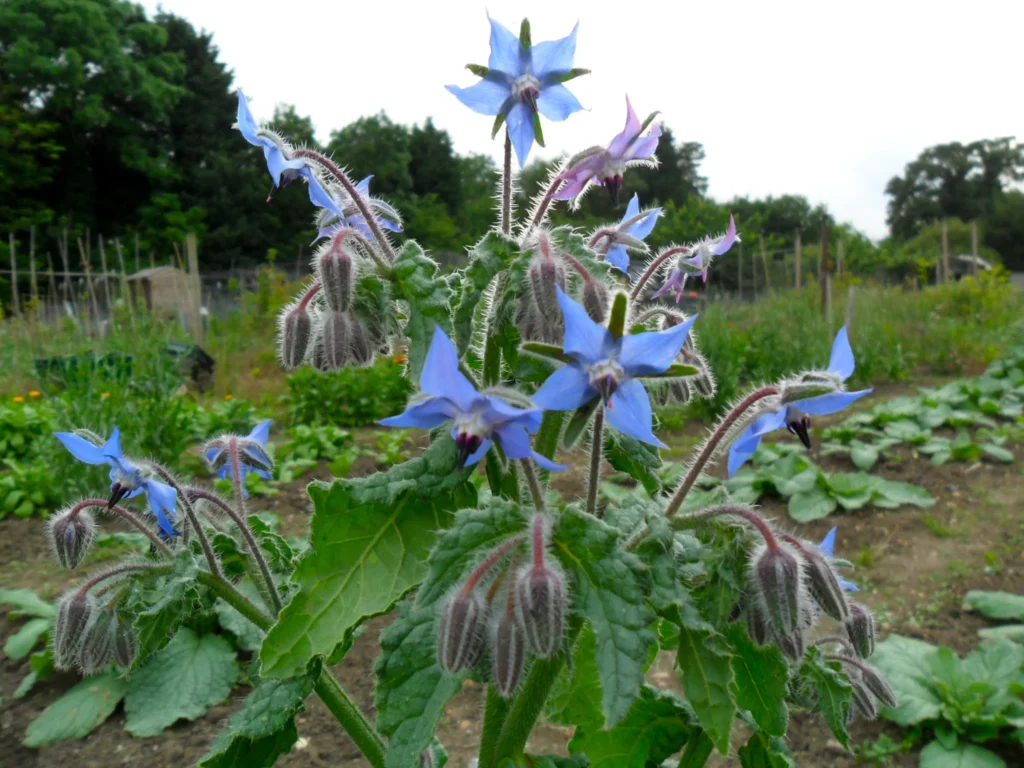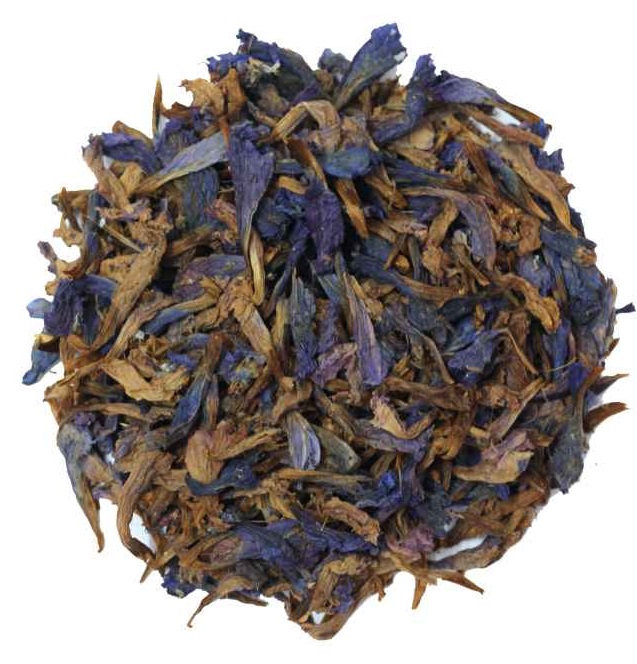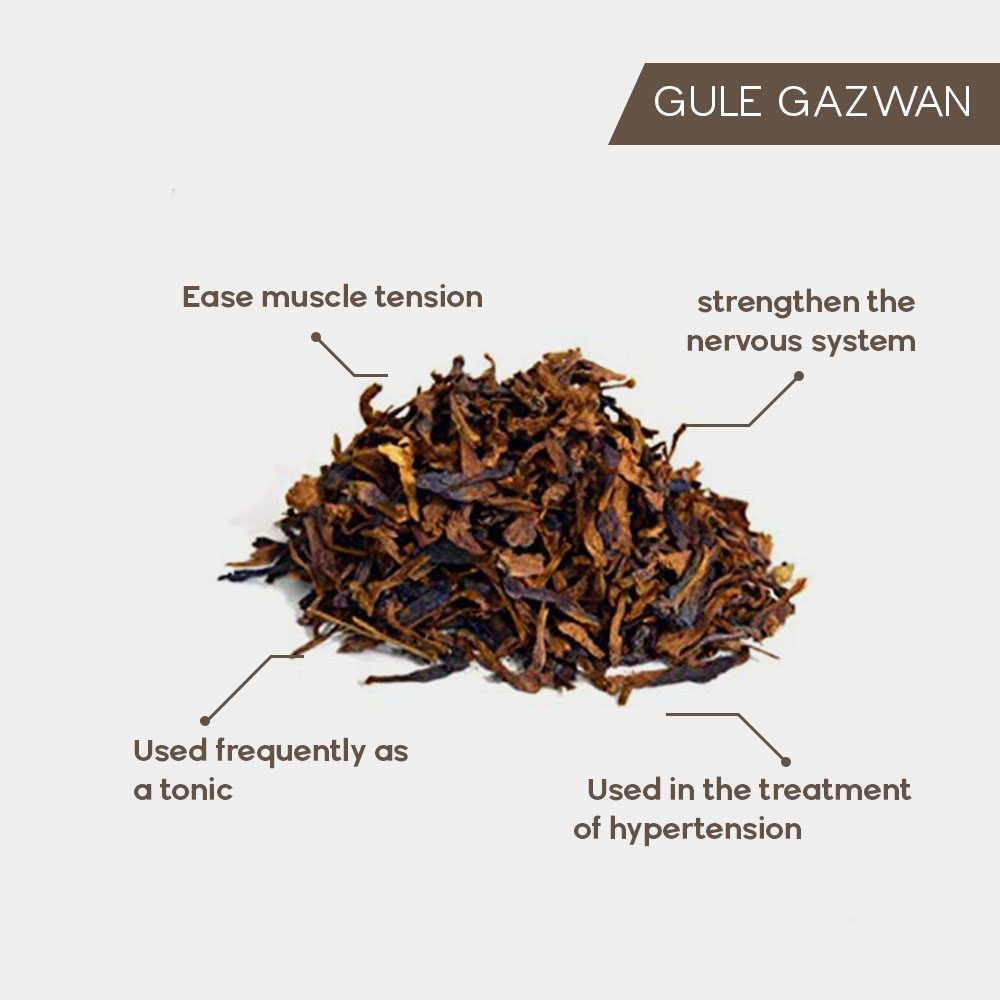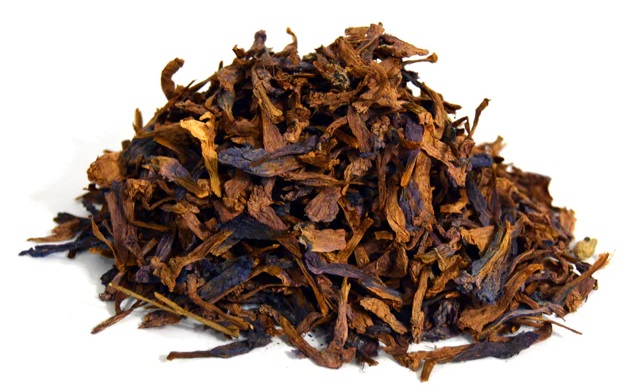What is Borage?
Urdu name: Gul-e-Gaozaban/ Gul-e-Gawzan

Borage (Borago officinalis) is a flowering plant known for its star-shaped blue flowers and is often used for medicinal purposes and culinary use. The leaves and flowers are edible and have a cucumber-like taste. Borage oil, extracted from its seeds, is rich in gamma-linolenic acid (GLA), which is believed to have anti-inflammatory properties. Borage has been traditionally used to treat conditions such as skin disorders, respiratory issues, and to support adrenal function. It is also grown as a companion plant in gardens due to its ability to attract beneficial insects like bees.
Scientific Name(s)
Borago officinalis
Common Name(s)
Borage is also known as burrage, common bugloss, bee-bread, bee fodder, star flower, ox’s tongue, and cool tankard.
Forms
Borage can be used in several forms, depending on the intended use. Here are common forms:
- Fresh Leaves – Used in salads, soups, and as a garnish.
- Dried Leaves – Used for herbal teas or infusions.
- Borage Oil – Extracted from seeds, rich in GLA, used in supplements and skin care products.
- Borage Flower – Edible and decorative, used in salads, desserts, or as a garnish.
- Capsules/Tablets – Contain borage oil or extracts, typically for medicinal purposes.
- Tinctures – Liquid extracts used for therapeutic purposes.
What are Borage Flowers?

Borage flowers come from the borage plant (Borago officinalis), an herb native to the Mediterranean region. The flowers are typically blue, star-shaped, and have a slightly fuzzy texture. They are often used in culinary dishes, herbal remedies, and cosmetics due to their potential health benefits. Borage flowers are rich in gamma-linolenic acid (GLA), which is beneficial for skin health and may help reduce inflammation. Additionally, they are sometimes used to garnish drinks and salads for their vibrant color and mild cucumber-like flavor.
Forms
Borage flowers can be found in several forms, including:
- Fresh Flowers: Used as garnishes in salads, drinks, and desserts.
- Dried Flowers: Used in herbal teas or as culinary herbs.
- Essential Oil: Extracted from the leaves and flowers, used in aromatherapy and skincare.
- Borage Oil: Derived from the seeds, high in gamma-linolenic acid (GLA), often used in supplements and skincare products.
- Tinctures: Alcohol-based extracts used for medicinal purposes.
- Capsules/Tablets: Supplements containing borage oil or extracts for health benefits.
Health Benefits
Borage flowers and their oil are associated with several health benefits:
Anti-inflammatory Properties
Borage oil is high in gamma-linolenic acid (GLA), an omega-6 fatty acid that helps reduce inflammation. This can be beneficial for conditions like arthritis and eczema, providing relief from swelling and discomfort.
Skin Health
The GLA in borage oil can help improve skin hydration, elasticity, and overall appearance. It is often used in skincare products to treat dry skin, eczema, and other skin conditions.
Hormonal Balance

GLA may aid in balancing hormones, which can help alleviate symptoms of premenstrual syndrome (PMS) and menopause. Some studies suggest that borage oil can reduce breast pain and other hormonal imbalances.
Heart Health
Omega-6 fatty acids, including GLA, can help lower cholesterol levels and reduce the risk of cardiovascular diseases by promoting better heart health.
Respiratory Health
Borage tea has been traditionally used to soothe coughs and colds. The flowers may have mild diuretic properties, promoting fluid loss and potentially helping with respiratory issues.
Immune System Support
The anti-inflammatory properties of borage may help support the immune system by reducing chronic inflammation, which can lead to various diseases.
Culinary Uses
While not a direct health benefit, the use of borage flowers in culinary dishes can encourage the consumption of fresh herbs and flowers, which may contribute to overall health by providing vitamins and antioxidants.
Antioxidant Properties
Borage contains antioxidants that help combat oxidative stress in the body, potentially reducing the risk of chronic diseases and supporting overall well-being.
Side Effects
Borage flowers and borage oil are generally safe for most people when used appropriately, but they can cause some side effects and interactions. Here are potential side effects:

- Digestive Issues
- Allergic Reactions
- Liver Toxicity
- Hormonal Effects
- Drug Interactions
- Pregnancy and Breastfeeding




